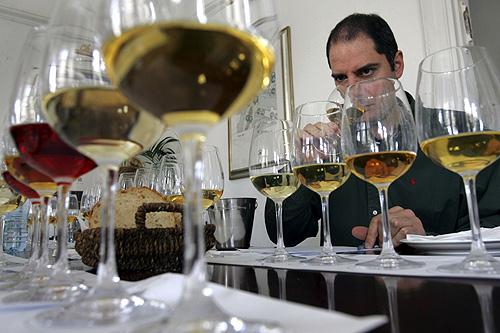
The science of wine and winemaking is known as oenology. A person who makes wine is traditionally called a winemaker or vintner.
Winemaking, or vinification starts with selection of the grapes or other produce and ending with bottling the finished wine.
Although most wine is made from grapes, it may also be made from other fruit or non-toxic plant material. For instance, mead is a wine that is made with honey being the primary ingredient after water.
...
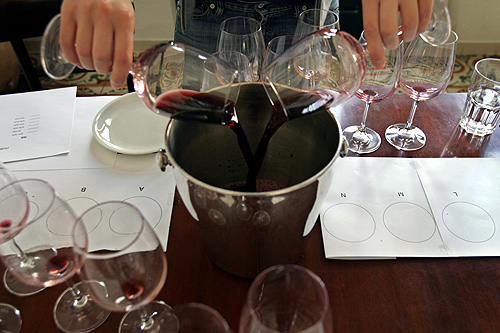
This science has its roots in prehistoric times, as the effects of alcohol were probably discovered when rotten fruit was consumed and found to have an intoxicating effect, which was viewed as pleasant.
Some say it was the Greeks. Some claim it was the Egyptians. Biblical scriptures declare Noah as being the creator of the first wine.
...
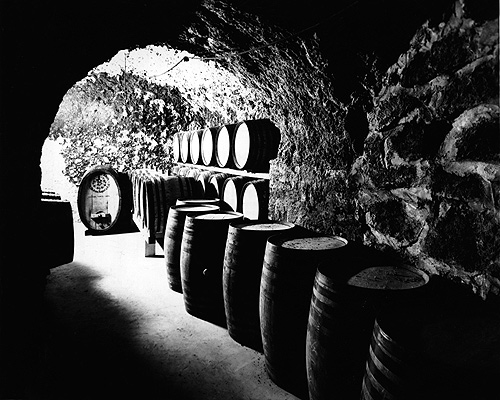
The art of making wine seems to have been developed in the Mediterranean area.
The process starts with harvest of grapes. After the harvest, the grapes are taken into a winery and prepared for primary ferment. At this stage red wine making diverges from white wine making.
...
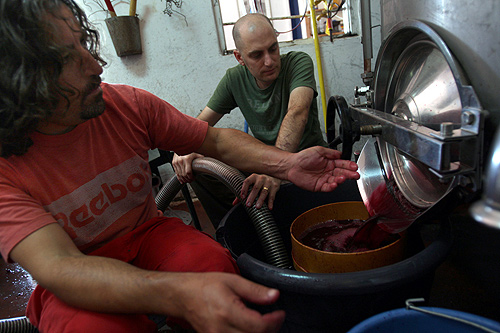
Red wine is made from the must (pulp) of red or black grapes and fermentation occurs together with the grape skins, which give the wine its colour.
...
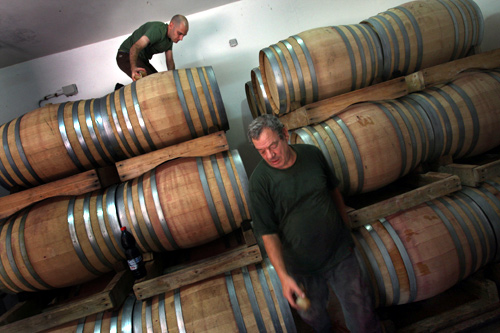
White wine is made by fermenting juice which is made by pressing crushed grapes to extract a juice; the skins are removed and play no further role. Occasionally white wine is made from red grapes.
...
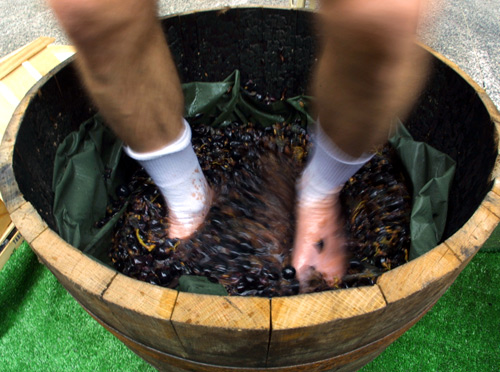
Grape-stomping -- also known as pigeage -- is part of a method of maceration used in traditional winemaking. Rather than using a wine press or other mechanised method, grapes were crushed by foot in vats to release their juices and begin fermentation.
...
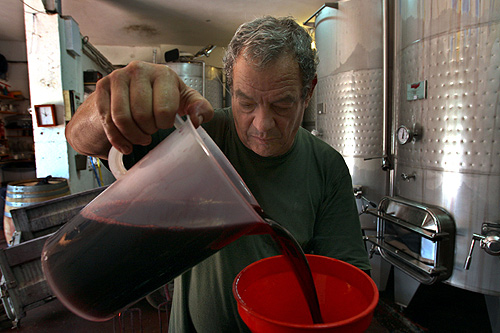
The time from harvest to drinking can vary from a few months for Beaujolais nouveau wines to over twenty years for top wines. However, only about 10 per cent of all red and 5 per cent of white wine will taste better after five years than it will after just one year.
...

Depending on the quality of grape and the target wine style, some of these steps may be combined or omitted to achieve the particular goals of the winemaker.
Many wines of comparable quality are produced using similar but distinctly different approaches to their production; quality is dictated by the attributes of the starting material and not necessarily the steps taken during vinification.
...
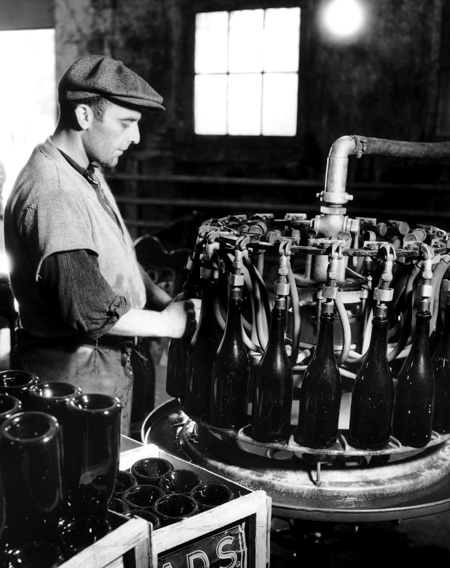
The amount of time that a wine is aged is equal to the time that elapses between fermentation and drinking.
White wine tends not to be aged for long, though some 'complex' white wines can be aged for 3-7 years. This process is much more common in red wines.
...

After fermentation, the wine is drawn off to separate it from the dead yeast cells and other sediments that have precipitated from the juice. The wine is chilled to create more clarification, and then bottled.
...
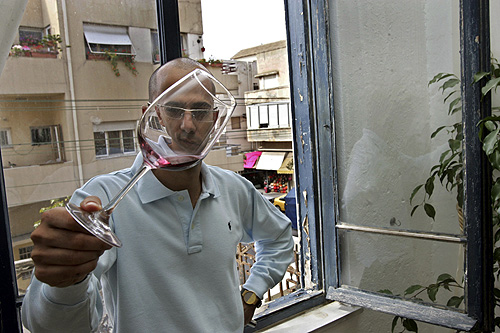
The alcohol content of wine is between 9 per cent and 12 per cent. This is because the yeast used to make wine reaches its tolerance at about 12 per cent then it stops fermenting.
...
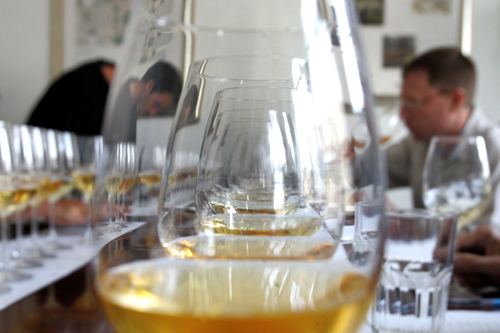
Home winemaking
As with the rise of brewing one's own beer, many people have taken on the rewarding hobby of amateur winemaking.
There are two basic ways to begin making wine. One is to use a kit. This is a good, inexpensive, low risk way to learn to make your elixir of choice.
The second way is to use real grapes. Much more challenging and expensive with less certain results (for the inexperienced) than a kit, but, if are successful the attempt would obviously be worth it.
Here's to wine... clink!